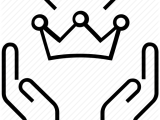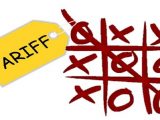Consumer behaviour is the study of individuals, groups, or organizations and all the activities associated with the purchase, use and disposal of goods and services, including the consumer’s emotional, mental and behavioural responses that precede or follow these activities. Consumer behaviour emerged in the 1940s and 50s as a distinct sub-discipline in the marketing area.In order to succeed in today’s dynamic and rapidly evolving marketplace, marketers need to know everything about consumers – what they need, what they think, how they work, how they spend their money and time. They need to identify the influencing forces that affect consumer decisions. Consumer behaviour is an inter-disciplinary social science that blends elements from psychology, sociology, social anthropology, ethnography, marketing and economics, especially behavioural economics. It examines how emotions, attitudes and preferences affect buying behaviour. Characteristics of individual consumers such as demographics, personality lifestyles and behavioural variables such as usage rates, usage occasion, loyalty, brand advocacy, willingness to provide referrals, in an attempt to understand people’s wants and consumption are all investigated in formal studies of consumer behaviour. The study of consumer behaviour also investigates the influences, on the consumer, from groups such as family, friends, sports, reference groups, and society in general.
Consumer behaviour entails “all activities associated with the purchase, use and disposal of goods and services, including the consumer’s emotional, mental and behavioural responses that precede or follow these activities.” The term, consumer can refer to individual consumers or organisational consumers. Consumer behaviour is concerned with:
- purchase activities: the purchase of goods or services; how consumers acquire products and services, and all the activities leading up to a purchase decision, including information search, evaluating goods and services and payment methods including the purchase experience
- use or consumption activities: concerns the who, where, when and how of consumption and the usage experience, including the symbolic associations and the way that goods are distributed within families or consumption units
- disposal activities: concerns the way that consumers dispose of products and packaging; may also include reselling activities such as eBay and second-hand markets
Consumer responses may be:
- emotional (or affective) responses: refer to emotions such as feelings or moods,
- mental (or cognitive) responses: refer to the consumer’s thought processes, their
- behavioural (or conative) responses: refer to the consumer’s observable responses in relation to the purchase and disposal of goods or services.
As a field of study, consumer behaviour is an applied social science. Consumer behaviour analysis is the “use of behaviour principles, usually gained experimentally, to interpret human economic consumption.” As a discipline, consumer behaviour stands at the intersection of economic psychology and marketing science.





